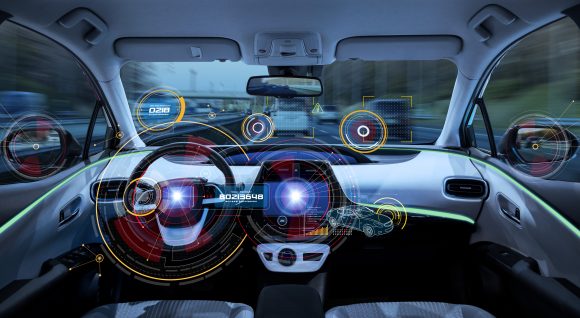MORE than half the UK automotive executives who took part in a recent survey believe that 30-50 per cent of physical dealerships across the country could disappear by 2025.
That was just one of the findings of the 2019 Global Automotive Executive Survey carried out by KPMG, the global professional services company and one of the big four auditors. Fifty-one per cent of the UK car industry bosses they spoke to voiced that opinion.
The survey also focused heavily on the data collected by connected cars and found that UK automotive executives believe that the owner/driver of such a vehicle in future won’t own the data it generates.
In fact, the survey found that only 35 per cent of UK automotive executives expect the owner/driver to have data ownership with their vehicle.
However, almost half of the consumers surveyed (47 per cent) believe that the owner/driver should be the sole owner of the data it generates.
Justin Benson, head of automotive at KPMG UK, said: ‘Personal data is a highly valuable asset. It’s the currency of the future and when vehicles become more connected and autonomous, consumers will be able to barter with their data.
‘However, a vehicle generates much more data about its environment, such as weather information, traffic congestion, speed and the state of the engine. With all new vehicles having connectivity features, the opportunity to gather data and offer better and more effective services is increasing.
Customer loyalty
‘This will be just as valuable to vehicle systems operators as personal data and I expect that it won’t be the driver who owns and has access to it.
‘Carmakers need to identify how to turn data into value for both their customers and their balance sheets. It’s also important that the focus extends to ensuring that the data is kept secure as this will be key for automotive and mobility brands to maintain customer loyalty and trust.’
As we move to a more connected future, the way in which we travel is changing, as is the way we pay for it, noted KPMG.
The study found that the majority (67 per cent) of automotive executives believe they are capable of managing a platform service, like an app, to offer mobility services.
Benson continued: ‘Think about it in the context of paying for a monthly or weekly subscription, like Netflix or Spotify, but instead, for all your travel needs. No longer will you be signing up for a lease or PCP (personal contract purchase) every few years, as you’ll have a regular payment which will give you access to the use of a vehicle in the first instance.
‘If consumers no longer own the vehicle and are instead renting for flexible periods and costs, then their relationship with the carmakers will change.’
Over the next six years, UK automotive executives expect that Tesla, Honda and BMW will lead the way in self-driving technologies.
‘If the UK wants to remain an automotive leader on the world stage, collaboration and strategic planning is vital,’ said Benson. ‘Traditional strengths alone won’t be enough, but combined with supportive legislation, dynamic R&D facilities and improved infrastructure, Britain has the potential to develop great vehicles that will continue to be sought after worldwide.’
This year’s KPMG Global Automotive Executive Survey included 55 senior figures from the UK among its 3,000 participants.
MORE: Carlos Ghosn’s defence lawyer quits
MORE: CMA approves acquisition of Motors.co.uk by eBay
MORE: Creator of the Haynes Manual maintenance guides dies aged 80


































